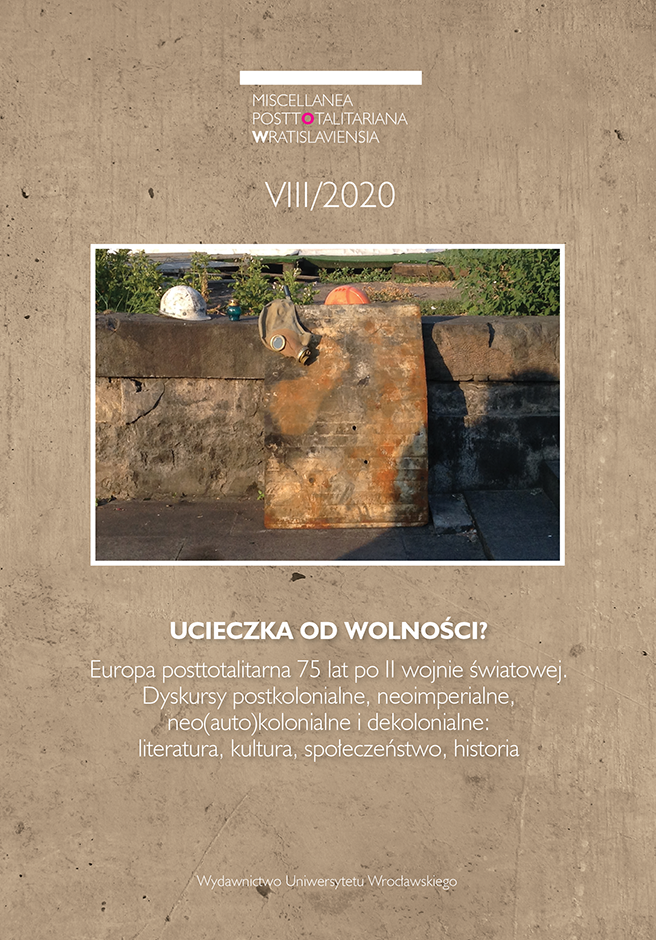Literackie obrazy tożsamości w prozie Andrzeja Stasiuka
Literary images of identity in the prose of Andrzej Stasiuk.
Author(s): Adrian MadejSubject(s): Language and Literature Studies, Sociology of Literature
Published by: Wydawnictwo Uniwersytetu Wrocławskiego
Keywords: identity; journey; discourse
Summary/Abstract: Andrzej Stasiuk, a Polish writer, is among authors who enjoy dealing with the world through the form of a reportage. Central Europe becomes the key point of his books, such as: Kroniki Beskidzkie i Światowe, Dziennik pisany później, Fado, Jadąc do Babadag, Wschód, and Moja Europa (written with Jurij Andruchowycz). In these works, Stasiuk touches upon the issue of the borders of Europe, which he defines as an intellectual space community. The question arises as to what criteria can be used in order to define the concept of Central Europe — to the author, one of the most important ones is the shared experience of the imposed communist system. The regime, which is an integral part of the immaterial culture of vast regions of Europe, has left its mark on the identities of those who lived behind the Iron Curtain until 1989/90. This is expressed and processed in Stasiuk’s literary works.
Journal: Miscellanea Posttotalitariana Wratislaviensia
- Issue Year: 8/2020
- Issue No: 1
- Page Range: 107-120
- Page Count: 14
- Language: Polish

